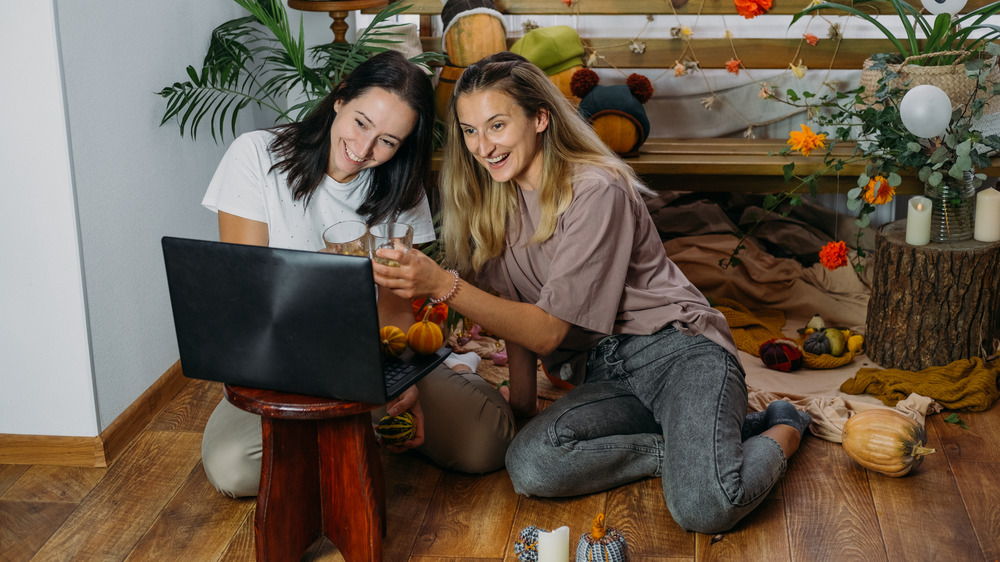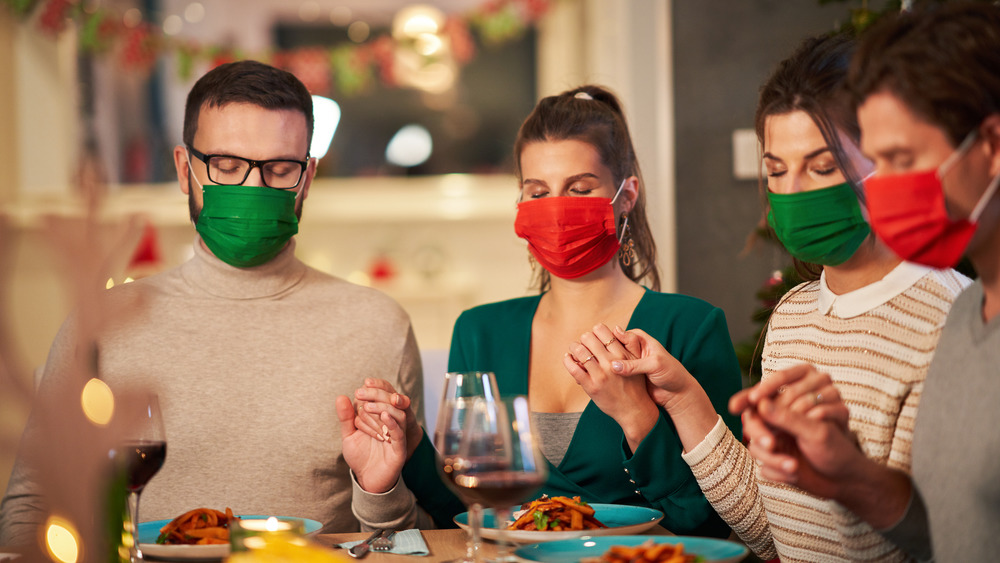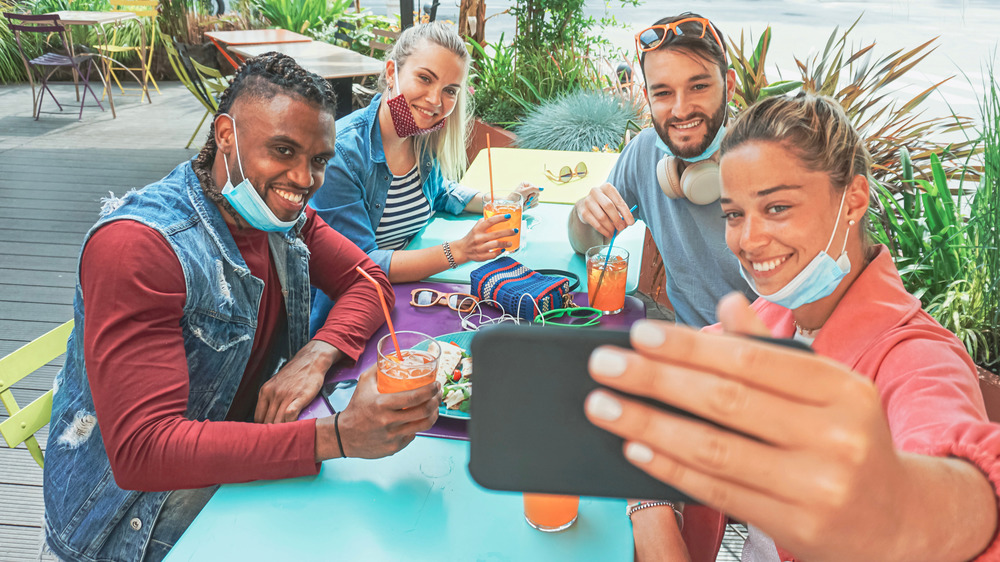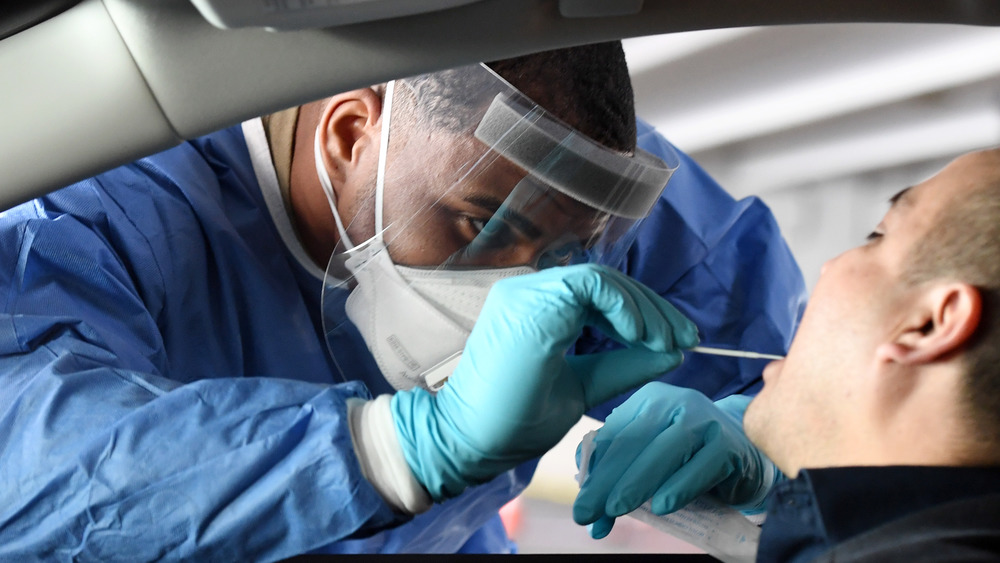The Reason Experts Say You Should Change Your Thanksgiving Plans
It seems like a lifetime ago when pandemic expert Dr. Anthony Fauci warned that Thanksgiving may need to change this year as a result of the coronavirus pandemic. Back in late October, he warned that getting together over a holiday dinner might be too high a price to pay, particularly if there is an at-risk member of the family. He said: "if you are in a situation where you have people who are vulnerable and you really want to be safe with them, you might want to not bring them together into a big dinner, or a big gathering where you have the possibility of a high risk of infection, you want to take a couple of steps back and say, 'Is it worth it for this year to bring those people together when you don't know what the status of everybody in that pod that you've created is?'" (via NBC).
Now other pandemic experts are weighing in to say something that we probably know in our heart of hearts but didn't want to admit — that Thanksgiving 2020 could end up making the year an even bigger dumpster fire than it already is — unless we take serious precautions which now include scaling back get-togethers with friends and loved ones.
Small gatherings are fuelling the rise in coronavirus cases
Vanderbilt University Professor of preventative medicine and infectious diseases William Schaffner is one of the public health experts who backs Dr. Fauci's warning. He tells People that "I'm afraid I am quite concerned about Thanksgiving because it's a wonderful, warm tradition of families and extended families gathering together for prolonged periods of time, very closely. And that's obviously the environment in which the COVID virus would like to spread."
Small gatherings where people are not wearing masks, and are spending more time with each other is being seen as one reason why coronavirus cases are on the rise across the country. In Minnesota, which The Washington Post says recently saw nearly 6,000 cases in one day, is seeing what the state's infectious-disease director Kris Ehresmann says is a circular problem of social gatherings leading to more community spread, and more spread making intimate gatherings more risky. In her county alone, Ehresmann says 30 percent of people who have caught the virus don't know how they got it.
Close proximity is hurting efforts to control the spread of COVID-19
Schaffner says these small gatherings are sabotaging efforts to get the spread of COVID-19 under control. "Indeed, the characteristic that's driving cases upward now is that people are gathering together in groups, not wearing their masks and spending more time with each other. And that causes an acceleration of what we're seeing now, because at the moment we're having a very steep increase in cases in literally every state," Schaffner tells People.
Close proximity is just one concern. Thanksgiving-related travel is another, and it doesn't matter whether you're in a car, driving, or on a flight. "You're in the car. You can get drive-through food, you can run in and out of the restroom very quickly. You can wipe off the handle on the gas pump while you're putting fuel into the car. Whereas, if you traveled with a public conveyance — air, rail bus, whatever — you're subject to the behaviors of others. Are they all wearing masks? Are they keeping social distancing? You're going to have to sit next to strangers. It's more risky," Schaffner says.
"This is a very very important moment for us:" Murthy
Public health experts have every reason to be concerned. CNN quotes the COVID Tracking Project as saying that the U.S. has more people in hospital because of COVID-19 than ever before. Dr Vivek Murthy, co-chair of President-elect Joe Biden's new coronavirus advisory board, says what we do now will have an impact on how the virus might be controlled. Surges were seen after Memorial Day and Labor Day, and Dr. Murthy is concerned that Thanksgiving might be no different. "This is a very, very important moment for us. We're at a point now, even pre-Thanksgiving, where we are surging beyond any level that we have seen over the last eight months."
Schaffner was more direct, saying "Separation should be the norm this Thanksgiving. We don't want to give the virus while we're giving thanks."



